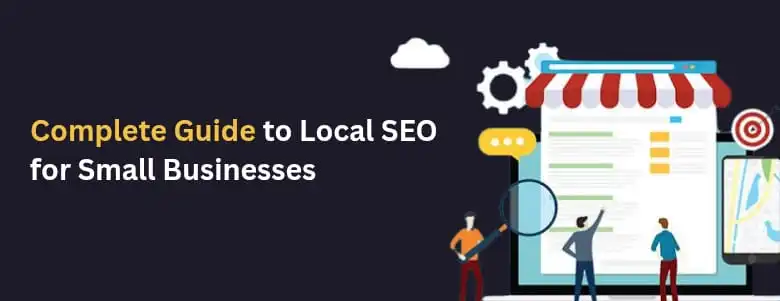In today’s competitive market, small businesses need to be strategic with their marketing efforts to achieve maximum impact without overspending. Whether you’re a startup or an established local business, utilizing smart marketing strategies can help you build brand awareness, attract customers, and increase revenue—all while staying within budget.
In this guide, we’ll explore budget-friendly marketing tactics, cost-effective ways to promote a business, and low-budget marketing ideas that will help you grow.
Table of Contents
1. Leverage Digital Marketing for Small Businesses
a) Optimize Your Website for SEO
A well-optimized website is essential for driving organic traffic without spending on ads. Implement best digital marketing strategies for small businesses by focusing on:
- Keyword research and on-page SEO
- Fast-loading pages and mobile optimization
- Engaging, high-quality content that addresses customer pain points
b) Use Content Marketing to Build Authority
Creating valuable content can establish your brand as an industry leader. Write blog posts, guides, and case studies that provide marketing tips for small businesses, addressing key questions and solutions your audience is looking for.
c) Invest in Email Marketing
Email marketing is one of the most cost-effective marketing methods. Start by:
- Building an email list with lead magnets (free ebooks, discounts, etc.)
- Sending regular newsletters with valuable insights and promotions
- Personalizing emails to improve engagement
2. Utilize Social Media Marketing on a Budget
a) Organic Social Media Strategies
Social media is a powerful, budget-friendly marketing tool for reaching your audience. Post regularly on platforms like Instagram, Facebook, LinkedIn, and Twitter, sharing:
- Industry insights and helpful tips
- Customer testimonials and success stories
- Behind-the-scenes content to humanize your brand
b) Leverage User-Generated Content
Encourage satisfied customers to share their experiences with your product or service. Reposting user-generated content increases credibility and engagement.
c) Run Targeted Ads with a Small Budget
If you have a limited advertising budget, invest in highly targeted social media ads. Facebook and Instagram allow you to set budget-friendly campaigns that reach the right audience.
3. Cost-Effective Ways to Promote a Business Offline
a) Network and Build Partnerships
Form partnerships with complementary businesses to cross-promote services. For example:
- A coffee shop collaborating with a local bakery
- A fitness trainer partnering with a healthy meal service
b) Utilize Word-of-Mouth Marketing
Happy customers are the best marketers. Encourage referrals by offering discounts or incentives for bringing in new customers.
c) Participate in Local Events
Attending community events, trade shows, or workshops helps increase visibility for your business. You can even offer free samples or demonstrations to attract potential customers.
4. Affordable Marketing Strategies for Startups
a) Implement Guerrilla Marketing
Guerrilla marketing uses unconventional, low-cost tactics to create buzz. Examples include:
- Flash mobs or creative street art to grab attention
- Unique packaging that encourages social media sharing
- Hosting surprise giveaways in public places
b) Offer Free Trials or Demos
People love trying before they buy. A free trial or demo can generate leads and increase trust in your product or service.
c) Get Featured in Local Media
Reach out to local newspapers, radio stations, or blogs with compelling stories about your business. Being featured in a media outlet boosts credibility and brand awareness.
5. Growth Marketing for Startups: How to Scale with Limited Resources
a) Use Influencer Marketing
Instead of hiring expensive celebrities, collaborate with micro-influencers in your niche. These individuals have loyal followings and can promote your brand at a lower cost.
b) Create a Referral Program
Offer existing customers incentives (discounts, freebies) for referring friends. This strategy generates new business without a high marketing spend.
c) Track and Optimize Your Marketing Efforts
Measure your marketing success with tools like Google Analytics and social media insights. Adjust strategies based on performance to maximize ROI.
Conclusion
Marketing doesn’t have to be expensive to be effective. By implementing smart marketing strategies, leveraging digital marketing for small businesses, and utilizing low-budget marketing ideas, you can attract and retain customers without breaking the bank.
Start small, experiment with different approaches, and focus on what works best for your business. With the right strategy, even a limited budget can drive big results. Want to grow your business without overspending? Webgi helps small businesses implement cost-effective digital marketing strategies that drive real results. Contact us today for expert guidance!
FAQs
1. What are the most effective marketing strategies for small businesses?
Small businesses should focus on SEO, social media marketing, content marketing, and word-of-mouth referrals to maximize impact with minimal costs. Partnering with local businesses and leveraging digital tools can also help in cost-effective brand promotion.
2. How can I market my business with little or no budget?
You can utilize free digital marketing tactics such as social media engagement, content marketing (blogs, videos, infographics), networking, and encouraging user-generated content. SEO-optimized websites and Google My Business listings can also attract organic traffic without ad spend.
3. Why is digital marketing important for small businesses?
Digital marketing helps small businesses reach a wider audience at a lower cost, improve customer engagement, and measure performance effectively. It provides various affordable options, such as email marketing, social media marketing, and SEO, to drive growth.
4. How do I know if my marketing strategy is working?
Track key performance metrics using tools like Google Analytics, social media insights, and email marketing reports. Monitor website traffic, engagement rates, conversion rates, and ROI to determine which strategies are most effective and make necessary adjustments.
Author
-

Shweta Tiwari brings her expertise in marketing and a passion for clear, engaging communication to the world of digital content. With 5 years of experience, she excels at breaking down complex marketing strategies into easy-to-understand insights. Specializing in digital marketing trends and strategy development, Shweta helps businesses grow and adapt in today’s fast-paced digital landscape





